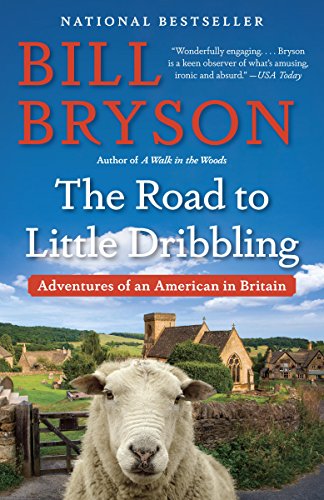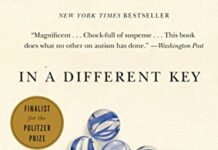
Ebook Info
- Published: 2016
- Number of pages: 382 pages
- Format: Epub
- File Size: 0.88 MB
- Authors: Bill Bryson
Description
A loving and hilarious—if occasionally spiky—valentine to Bill Bryson’s adopted country, Great Britain. Prepare for total joy and multiple episodes of unseemly laughter.
Twenty years ago, Bill Bryson went on a trip around Britain to discover and celebrate that green and pleasant land. The result was Notes from a Small Island, a true classic and one of the bestselling travel books ever written. Now he has traveled about Britain again, by bus and train and rental car and on foot, to see what has changed—and what hasn’t.
Following (but not too closely) a route he dubs the Bryson Line, from Bognor Regis in the south to Cape Wrath in the north, by way of places few travelers ever get to at all, Bryson rediscovers the wondrously beautiful, magnificently eccentric, endearingly singular country that he both celebrates and, when called for, twits. With his matchless instinct for the funniest and quirkiest and his unerring eye for the idiotic, the bewildering, the appealing, and the ridiculous, he offers acute and perceptive insights into all that is best and worst about Britain today.
Nothing is more entertaining than Bill Bryson on the road—and on a tear. The Road to Little Dribbling reaffirms his stature as a master of the travel narrative—and a really, really funny guy.
User’s Reviews
Amazon.com Review An Amazon Best Book of January 2016: The Road to Little Dribbling comes twenty years after Bill Bryson’s Notes from a Small Island, in which he first described his love affair with his adopted Great Britain. That first book was laugh-out-loud funny, and so is this one. It opens with Bryson describing (hilariously) the perils of growing older, eventually revealing the author’s successful passing of the Life in Britain Knowledge Test (thus, making him a British citizen). The rest of the book follows that pattern: Bryson describes getting older, and he describes Great Britain via a trip he took across the 700 mile long island. While he tried to avoid places he visited in Notes from a Small Island—he does revisit Dover—those who read the first book will enjoy a welcome sense of the familiar—even if Bryson appears to have grown a little more cynical and angry with age. But give the guy a break: the world is changing, even his beloved “cozy and embraceable” island. And as he writes in the book, “I recently realized with dismay that I am even too old for early onset dementia. Any dementia I get will be right on time.” –Chris Schluep –This text refers to an out of print or unavailable edition of this title. Review Praise for The Road to Little Dribbling:”Although he’s now entering what he fondly calls his ‘dotage,’ the 64-year-old Bryson seems merely to have sharpened both his charms and his crotchets. As the title of The Road to Little Dribbling suggests, he remains devoted to Britain’s eccentric place names as well as its eccentric pastimes.” —Alida Becker, The New York Times Book Review”[Y]ou could hardly ask for a better guide to Great Britain than Bill Bryson. Bryson’s new book is in most ways a worthy successor and sequel to his classic Notes From A Small Island. Like its predecessor, The Road to Little Dribbling is a travel memoir, combining adventures and observations from his travels around the island nation with recounting of his life there, off and mostly on, over the last four decades. Bryson is such a good writer that even if you don’t especially go in for travel books, he makes reading this book worthwhile.”—Nancy Klingener, Miami Herald”…Bryson’s capacity for wonder at the beauty of his adopted homeland seems to have only grown with time…. Britain is still his home four decades later, a period in which he went from lowly scribe at small-town British papers to best-selling travel writer. But he retains an outsider’s appreciation for a country that first struck him as ‘wholly strange … and yet somehow marvelous.”—Griff Witte, Washington Post“Such a pleasure to once again travel the lanes and walking paths of Britain in the company of Bill Bryson! He’s a little older now, and not necessarily wiser, but he’s as delightful and irascible a guide as anyone could ever wish to have, as he rediscovers this somewhat careworn land and finds it as endearing (mostly) as ever. It’s a rare book that will make me laugh out loud. This one did, over and over.” —Erik Larson, author of Dead Wake and The Devil in the White City”There’s a whole lot of “went to a charming little village named Bloke-on-Weed, had a look around, a cupof tea, and moved on” in Bryson’s most recent toddle around Britain. Writing 20 years after his bestselling Notes from a Small Island, Bryson concocts another trip through his homeland of 40 years bydetermining the longest distance one could travel in Britain in a straight line… This being Bryson, one chuckles every couple of pages, of course, saying, ‘yup, that sounds about right,’ to his curmudgeonly commentary on everything from excess traffic and litter to rude sales clerks. One also feels the thrum of wanderlust as Bryson encounters another gem of a town or pip of a pub. And therein lies the charm of armchair traveling with Bryson. He clearly adores his adopted country. There are no better views, finer hikes, more glorious castles, or statelier grounds than the ones he finds, and Bryson takes readers on a lark of a walk across this small island with megamagnetism.”—Booklist, starred review”Fans should expect to chuckle, snort, snigger, grunt, laugh out loud and shake with recognition…a clotted cream and homemade jam scone of a treat.” —Sunday Times”At its best as the history of a love affair, the very special relationship between Bryson and Britain. We remain lucky to have him.” —Matthew Engel, Financial Times”Is it the funniest travel book I’ve read all year? Of course it is.” —Daily Telegraph “We have a tradition in this country of literary teddy bears—John Betjeman and Alan Bennett among them—whose cutting critiques of the absurdities and hypocrisies of the British people are carried out with such wit and good humour that they become national treasures. Bill Bryson is American but is now firmly established in the British teddy bear pantheon… The fact that this wonderful writer can unerringly catalogue all our faults and is still happy to put up with us should make every British reader’s chest swell with pride.” —Jake Kerridge, Sunday Express “The truly great thing about Bryson is that he really cares and is insanely curious… Reading his work is like going on holiday with the members of Monty Python.” —Chris Taylor, Mashable “There were moments when I snorted out loud with laughter while reading this book in public… He can be as gloriously silly as ever.” —The London Times “The observation, the wit, the geniality of Bryson’s inimitable words illuminate ever chapter.” —Terry Wogan, Irish Times “Everybody loves Bill Bryson, don’t they? He’s clever, witty, entertaining, a great companion… his research is on show here, producing insight, wisdom and startling nuggets of information… Bill Bryson and his new book are the dog’s bollocks.” —Independent on Sunday “Stuffed with eye-opening facts and statistics….. Bryson’s charm and wit continue to float off the page….Recognising oneself is part of the pleasure of reading Bryson’s mostly affable rants about Britain and Britishness.” —Daily Mail”His millions of readers will probably enjoy this just as much as its predecessor.” —Observer”We go to him less for insights—though there are plenty of these—and more for the pleasure of his company. And he can be very funny indeed. Almost every page has a line worth quoting.” —Glasgow Herald”At last, Bill Bryson has got back to what he does best—penning travel books that educate, inform and will have you laughing out loud… I was chuckling away by page four and soaking up his historic facts to impress my mates with. Sure to be a bestseller.” —Sun”Bryson has no equal. He combines the charm and humour of Michael Palin with the cantankerousness of Victor Meldrew and the result is a benign intolerance that makes for a gloriously funny read.” —Daily Express –This text refers to an out of print or unavailable edition of this title.
Reviews from Amazon users, collected at the time the book is getting published on UniedVRG. It can be related to shiping or paper quality instead of the book content:
⭐ By giving Bill Bryson 3 stars, I feel like I am committing a heresy but I’ve thought about it long and hard and 3 stars is all this book warrants. I love Bill Bryson’s writing, especially his travel writing, but this book is just not up to his standard. It feels like it was thrown together simply as a money-making exercise. There is no underlying thread to the book, there is no journey. It’s a series of day trips to places he would have been going to anyway. The underlying theme is supposed to be the “Bryson line” but he barely refers to it after the first few pages and the only places he really visits along the line are the two ends. Most of the other places are nowhere near the line. He also includes a lot of material from other books, either it was in the book or it was stuff he had left over after finishing the book. I’m sorry Bill, you can do (and have done) better than this.
⭐ On the one hand he is a very funny and entertaining writer; no one can make me laugh out loud while reading the way he can. Also, he is so compelling in his praise and vivid in his descriptions; I really want to visit the places about which he writes.On the other hand, the angry old man stuff gets tiring. His liberal use of the word “idiot” evidences a real inner anger he ought to get under control. A poor government worker just doing their job by enforcing a rule isn’t just wrong in Bill’s eyes; he is an idiot…some lower being to be scorned for doing his job. It is an attitude the author has, and it is both tiring and troubling.I finally figured it out, though. I love travel because of the people on the way that I meet. Bill loves travel despite the people on the way that he meets.
⭐ Bill Bryson may be wearing out his welcome. My English friends call him “Bryson the Curmudgeon.” Unhappy with the US, he becomes a UK citizen and spends his time in rapture over the countryside and scathing about the people. This follow-on to Notes from a Small Island becomes what PT Barnum warned about: “Never follow an elephant act with another elephant act.” In places Bryson is dead-on accurate. I know because I’ve visited some of the same out of the way places and pubs. But in other places he’s simply mean. Maybe it’s creeping age.
⭐ I’ve greatly enjoyed many of Bill Bryson’s prior works, but this one left me concerned about the drift to curmudgeonly thinking from focusing on what he doesn’t like more than what is likable.Also, often politics enters many of Bill’s books but never to this extent. The section on immigration Bill, sadly, embraced a straw man argument to stake out a position no one disagrees with.Being a logical person myself, seeing this descent into the illogical abyss left me wishing I had read a different book.Still, it’s got 2 stars because there was a lot of interesting information. I’ve made 6 trips to the UK and I was often taking a new tidbit of info Bill exposed then looking up more information.My wife is determined to see the Ridley Mounds described in the books. I wonder what future generation will completely misinterpret the structure. This begs the question of how much guessing do we do looking at the many ancient structures. Was it really a super religious site, or someone’s fanciful whim, or something in between.I just found it hard to enjoy the fun information combined with the straw man arguments pushing a liberal perspective yet at the same time bashing the actions of liberal government.
⭐ A very good opening and close were largely out of synch with the rest of the tone of the book. I have read and enjoyed many of the author’s books beginning with Notes From a Small Island which I purchased at a small independent bookstore in Manchester England. Time has not mellowed the author, I did not find him to be a “playful curmudgeon” but rather too often being a grumpy old man. I also thought that someone who has so much respect for the English language could find other ways to voice displeasure rather than curse words and foul language. It’s unfortunate that so many interesting observations about his adopted home have to be tainted in this way. It makes his apparent affection for the place expressed in the last few pages less believable, or maybe understandable.
⭐ 2.5 starsI bought this book three years ago and finally got around to reading it. I wish I hadn’t. Yes, the book is full of trivia, like the story of the first man killed by a train and the aggressive cows and the site of the factory that sparked the Industrial Revolution.There’s also a charming aside about Britain’s road numbers. “What makes the system enchanting to people like Emmerson and Bancroft is that it doesn’t actually work. It never could. That is, as I say, the brilliance of it. For one thing, roads must leave their assigned sectors in order to proceed across the country. The A38, for instance, starts in Zone 3, as it ought to, but trespasses into Zones 4, 5, and 6 as it travels from Devon to Nottinghamshire. The A41 actually starts and finishes in Zone 5. It’s called the A41 because—well, I don’t know why. The rule—I am not making this up; no one could—is that roads may venture into other zones and retain their number as long as their direction of travel is clockwise and not anticlockwise, though this rule has exceptions, too.”This book’s organization is as muddled as the road system. I had been led to believe at the outset that Bryson would travel the Bryson line from Dover to the north of Scotland, yet this line somehow takes us through places like Hampshire and Dorset. We also hear a bit of griping about American pundits and politicians. While I don’t disagree on principle with those thoughts, they simply don’t fit in a travelogue about Britain.The careening path would be acceptable if the narrative were charming, but unlike the road numbering system, it very much isn’t. Instead it’s a pointless display of malignant spleen. For example, he loathes and then insults a retail worker merely because the kid uses gel. This is every bit as bigoted as the Sean Hannity Bryson rails against.The lack of self-reflection is a constant theme. Bryson—the man charmed by road numbers, mocks trainspotters: “ They all looked like the sort of people who had never had sex with anything they couldn’t put in a closet afterward. I tried to imagine what the rest of their lives was like if this was the fun part, but couldn’t.” He lashes out at other eccentrics, too, such as people who study moss—“I can’t tell you what comfort this brings me. Any time I am feeling low, when I am tempted to think that life is pointless and empty, I go to one of these societies’ websites and read about their latest outings, and I realize just how rich my life is..” He does this with no self-awareness, conveniently forgetting that he himself is charmed by the guy who a century or two ago counted every single freestanding rock in Britain.There’s also an undertone of creep: “It is full of Arabic tiles, silk wallpapers, colorful ceramics, and lots of art, much of it involving bare-breasted young women, which I am always up for.”. Granted, this was published before MeToo, so perhaps I should cut him a bit of slack.This is not to say Bryson is irredeemable. He cites his friend’s child, who beat leukemia, as his greatest hero, and that counts for something. It’s just that there’s not enough of that Bryson in the book. Instead it’s the Bryson whose publisher gives him a pass on the coattails of his former writing prowess; the Bryson who humblebrags that he has a house with a name, not an address; the Bryson who needs to get over being a seething misanthropeand go back to being a witty curmudgeon.
⭐ Bryson Line definition: As drawn on a map of Great Britain by author Bill Bryson, the Bryson Line connects the two furthest apart points on the island measured north to south in a straight line and which are Cape Wrath and Bognor Regis respectively.Bill Bryson loves the island of Great Britain as much as I do, as he gave evidence years ago when he published Notes from a Small Island . Since then, I’ve read pretty much everything he’s written and regard him as one of my very favorite writers.Here, after his publisher suggests that Bill do a sequel to NOTES, the author embarks on the road trip, very loosely following the Bryson Line south to north, that culminates in THE ROAD TO LITTLE DRIBBLING.Now in his mid-sixties, it’s obvious that Ol’ Bill is turning into a querulous curmudgeon. But, at 68, so am I. However, the proof of the pudding is that England and Great Britain survived this acid test of his fussy inspection. That, to me, is evidence that the country(side) I’ve loved for years has endured since I’ve been away. Bryson writes in THE ROAD TO LITTLE DRIBBLING:“Nothing – and I mean really, absolutely nothing – is more extraordinary in Britain than the beauty of the countryside. Nowhere in the world is there a landscape that has been more intensively utilized ‒ more mined, farmed, quarried, covered with cities and clanging factories, threaded with motorways and rail-road tracks ‒ and yet remains so comprehensively and reliably lovely over most of its extent. It is the happiest accident in history.”“Now I am not saying that London is the world’s best city because it had a homosexual brothel scandal or because Virginia Woolf and L. Ron Hubbard around the corner, or anything like that. I am just saying that London is layered with history and full of secret corners in a way that no other city can touch. And it has pubs and lots of trees and is often quite lovely. You can’t beat that.”“… I thought that when England is lovely there isn’t any place I would rather be.”Yes. Oh, yes.With this latest book, I nevertheless must take issue with the author’s narrative on two points and would reduce the stars awarded to four and a half if the rating system allowed.Within the text for the first time I can recall, Bill reveals his political orientation. For a writer who does not pen politically themed books and appeals to a wide range of readers, this seems pointlessly provocative with the potential of alienating many. Indeed, this looks downright stupid on his part.Secondly, Bryson uses the F-word on several occasions when expressing his opinion (as opposed to when quoting someone else). Mind you, I’m not offended, just puzzled. While the word often appears in novels and might appear in a heated political essay, for Bill to apparently find it necessary to use it pretty much unnecessarily perhaps indicates mental regression. At 65, Bill, are you now becoming fifteen again? It’s sad that an otherwise master of the language is reduced to gutter talk. I’m just saying.
⭐ I now own 10 Bill Bryson books. I read “Notes from a Small Island” about his trip around Britain 20 years ago, and this book, “The Road to Little Dribbling,” back to back. Interesting contrast. Bill reveals himself to be somewhat more of a curmudgeon now, but as usual I found myself suddenly laughing out loud multiple times, as he is such a talented writer.After finishing the book, I learned that BIll and I have a lot in common: We both have a wonderful wife, great kids, enjoyable profession and a sense of humor. However, this book accentuated our differences: I would never consider writing a book and being so irreverent as to place the “F” word in it multiple times, BiIl has grown to overly indulge in alcoholic consumption whereas I over indulge in reading Bill Bryson books, and he reveals his politics which “hinted” at a disdain for we “Reagan Conservatives.”Still, I recommend all 10 of his books in my collection.Dr. Stanley E. Toompas, Optometrist& Author of, “I’m the One the Other Isn’t”
⭐ I was introduced to Bill Bryson’s work by a friend in the UK while I was living in the UK. My friend also introduced me to hiking (rambling) in the UK, so when I read Bryson’s earlier works, when he clearly loved the UK and didn’t like the US so much. I return to the UK annually to continue my walking adventures. So when I heard this book was coming out, I was excited to read it. I was SO disappointed almost from the first chapter. It opens with Bill getting his UK citizenship, so I thought, “he’s finally realized a dream.” What follows is totally opposite from his earlier books: he seems to focus only on the NEGATIVE aspects of living in the UK. He uses the “F word” way too much, and he calls someone an idiot three times in the first chapter. He’s basically become a grumpy old man b^#*@ing about how good life USED to be, but how wrong it is now. It made me wonder why he went ahead becoming a citizen. Had I been a first time reader of Bryson’s work, I would only be left with a horrible impression of the UK and really not want to visit there (totally opposite from his earlier works). Only in the last 5 pages, when he decides to give 5 reasons why he loves the UK, does it echo his previous works. Unfortunately, those 5 pages aren’t enough to reverse the bad impression.
⭐ A meandering, lifeless narrative of a grouchy old man wandering through England. Let’s see how many quaint English village names you can cram into a paragraph while occasionally stabbing at your birthplace in America. We get it, you old coot, you don’t like America or Americans for that matter, that’s fine, just don’t bore us with your rants and uninspired walks through countless boring-but-quaint sounding English towns. I couldn’t finish it. Love his earlier books, not this one.
Keywords
Free Download The Road to Little Dribbling: Adventures of an American in Britain in Epub format
The Road to Little Dribbling: Adventures of an American in Britain Epub Free Download
Download The Road to Little Dribbling: Adventures of an American in Britain 2016 Epub Free
The Road to Little Dribbling: Adventures of an American in Britain 2016 Epub Free Download
Download The Road to Little Dribbling: Adventures of an American in Britain Epub
Free Download Ebook The Road to Little Dribbling: Adventures of an American in Britain





